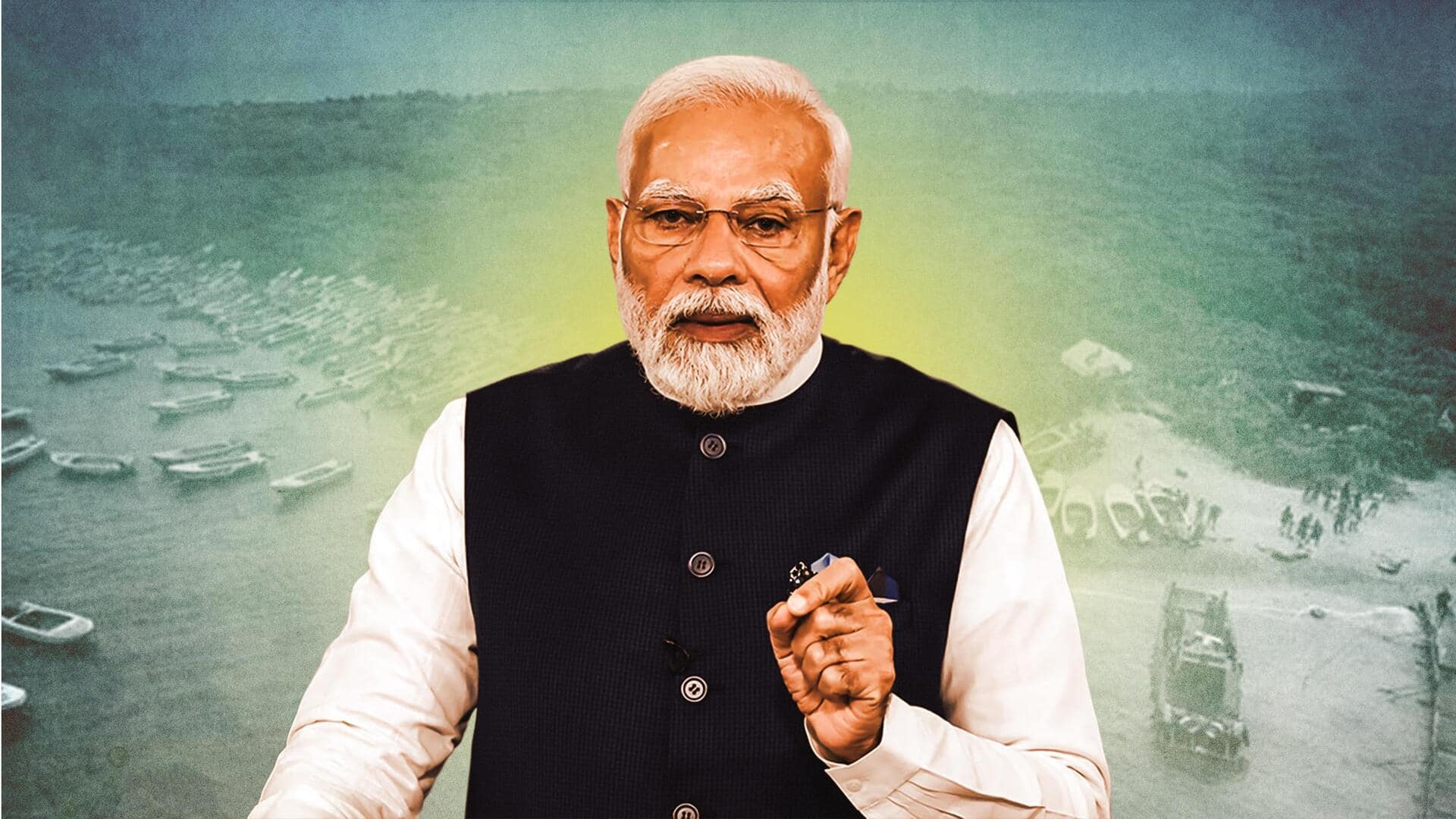
Why PM Modi's statement on Katchatheevu Island is raising eyebrows
What's the story
Prime Minister Narendra Modi—during the no-confidence motion debate in the Parliament on Thursday—blamed former PM Indira Gandhi for "gifting" the disputed Katchatheevu Island to Sri Lanka.
Located between Rameswaram (India) and Sri Lanka, Katchatheevu was traditionally used by both Indian and Lankan Indian fishermen.
However, under the "Indo-Sri Lankan Maritime Agreement" in 1974, Gandhi ceded Katchatheevu as Sri Lankan territory.
Here's everything to know.
Statement
PM Modi's remarks about Katchatheevu in Lok Sabha
During his speech during the no-confidence motion debate, PM Modi mentioned Katchatheevu Island while hitting out at Congress leader Rahul Gandhi for his now-expunged "murder of Bharat Mata" remarks.
"Katchatheevu is an island between Tamil Nadu and Sri Lanka. Somebody gave it to another country. It happened under the leadership of Indira Gandhi," PM Modi said.
"Wasn't that part of Maa Bharati there?"
MK Stalin
MK Stalin urged PM Modi to initiate retrieval process
The Katchahtheevu issue once again assumed prominence in July when Tamil Nadu CM MK Stalin urged PM Modi to initiate its retrieval process during the Sri Lankan President Ranil Wickremesinghe's India visit.
The transfer of Katchatheevu to Sri Lanka—by the Centre, without the state government's consent in the 1970s—badly impacted the livelihood of the Tamil fisherfolk, Stalin said in a letter to PM Modi.
Facts
Know about Katchatheevu Island
Katchatheevu is a small uninhabited island in Palk Strait that connects the Bay of Bengal to the Arabian Sea.
India claimed the territory until 1976, but it is now administered by Sri Lanka following the India-Sri Lanka Maritime Boundary Agreements signed between 1974-76.
Now, Indian fisherfolk can't engage in fishing activities in and around the region, which has almost 285 acres of land.
Dispute
Here's what issue is about
Indian and Lankan fishermen once used to fish in each other's waters without conflict.
However, issues reportedly emerged when India and Sri Lanka signed maritime boundary agreements that restricted Indian fisherfolk from fishing around Katchatheevu.
The problem turned serious when fish and aquatic life in the Indian continental shelf depleted—resulting in more Indian fisherfolk entering Lankan waters, including Kathchateevu, and began facing the consequences.
LTTE
How LTTE's presence impacted conflict
Until 2010, Lanka restricted the mobility of its fishermen in certain waters and heavily guarded its maritime border in Palk Strait during the era of the Liberation Tigers of Tamil Eelam (LTTE)—a separatist organization.
Indian fishermen reportedly saw this as an opportunity and ventured to Katchatheevu.
However, in 2010, when the Lankan civil war ended, the country's fisherfolk resumed their activities in Palk Strait.
Centre vs Tamil Nadu
Tamil Nadu government's fight with Centre over Katchatheevu
In 1974, Gandhi reportedly signed several maritime treaties with Sri Lankan President Sirimavo Bandaranaike and ceded Katchatheevu Island to Sri Lanka.
Years later, the Tamil Nadu Assembly also passed a resolution in 1991 seeking the retrieval of Katchatheevu Island through the resolution.
Notably, in 2008, then-Tamil Nadu CM J Jayalalithaa also petitioned the Supreme Court to overturn the Katchatheevu accords.
Livelihood issue
Frequent clashes impact livelihood of fishing community members
Tamil Nadu fisherfolk often clash with Lankan authorities over their fishing activity around Katchatheevu, with frequent arrests of fishermen and boat seizures by the Sri Lankan Navy.
However, political experts believe it is only a political talking point and not an electoral issue.
PM Modi's latest statement has raised eyebrows as the Modi government has also previously reiterated that Katchatheevu is part of Lanka.